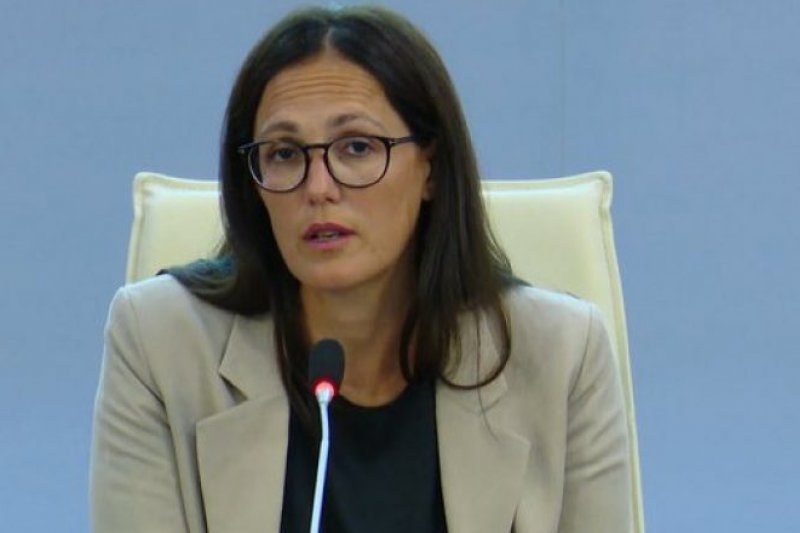‘2023 Budget Aims at Mitigating Impact of Crisis’
The Minister of Finance and Economy, Delina Ibrahimaj, presented on Wednesday the next year's draft budget to the Parliamentary Committee on Economy.
During her speech, Ibrahimaj said that the draft budget materializes two main objectives: the mitigation of the global crisis, supporting the needy layers of society and that of electricity, without changing the price of energy; and the continuation of the fiscal consolidation of public finances. She added that the budget also materializes a number of investment projects.
During the presentation of the budget, Ibrahimaj claimed that economic growth of 2.6% is expected for 2023, with an increase from the recent forecast of the International Monetary Fund.
The Ministry of Finance predicts that economic growth will be supported by consumption, investments.
“For 2022, we have revised upward the projection of economic growth to 3.7% from the 3.2% we predicted at the beginning of the war. The IMF concluded the same forecast at the end of its mission, about two weeks ago,” Ibrahimaj said.
“For 2023, based on our baseline scenario, we predict real growth of 2.6%. The growth will be mainly generated by domestic demand, consumption and investments, but to a marginal extent net foreign demand supported by the increase in exports of goods and services is also expected to contribute positively. Meanwhile, the IMF forecast for next year is 2.2%,” Ibrahimaj added.
From the perspective of aggregate demand, the real economic growth for the next year is expected to be generated by the real growth of final consumption of 1.3%, of investments of 4.5% and net exports will increase by 3.6%, Ibrahimaj said, adding that from the aggregate supply, it is predicted that the real growth of the gross domestic product will be spread on a broad basis where growth is expected in the positive direction of all supply sectors, such as: agriculture, industry, construction and services. “The services sector is expected to be the main generator of economic growth with a contribution of 1.3 percentage points, i.e. half of the economic growth predicted for the next year.”
The Ministry of Finance and Economy also predicts that the highest probability is that inflation will decrease significantly during the next year, especially if a part of Europe goes to recession, be it technical or full. "In our base scenario, we foresee an average inflation rate of 3.6% for the next year, with a downward trend during the year and reaching around 3% at the end of 2023", underlined the Minister of Finance.
Ibrahimaj also emphasized that based on these macroeconomic forecasts and the unwavering objective of reducing the public debt, the total budget revenues for 2023 are expected to reach Lek 631.7 billion or about 29% of GDP from 28.2% in 2022.
According to the minister, budget expenditures are also expected to increase, in a value of Lek 687.2 billion, with an increase in absolute value of Lek 26.5 billion, compared to the revised plan of 2022. The Minister of Finance underlined that for 2023 the public debt will decrease to 69% of GDP.
At the same time, Ibrahimaj noted that public investments for 2023 are predicted to be around 5.5% of GDP, while the overall fiscal deficit for the coming year is targeted at 2.6% of GDP.













